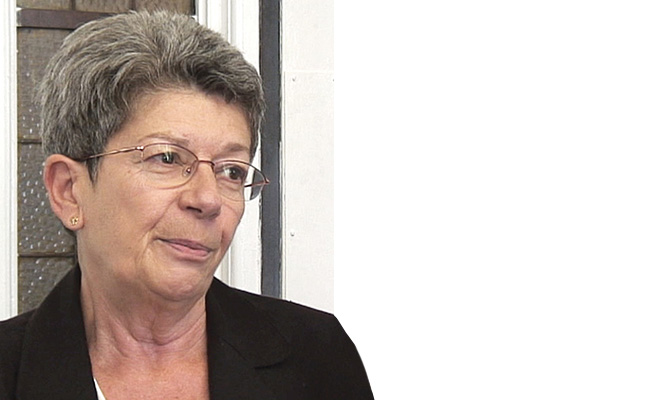
Insights + interviews
The Role Of Active Agers: In Conversation With Dr. Jan Stockdale
Singapore, and the rest of ASEAN continues to move towards an ageing population where the demographic will look to effect changes in both policy and environment that are more relevant and appropriate to them.
Policy makers are starting to look beyond the traditional parameters of healthcare and towards encouraging integration, minimising any sudden impact to the economy and other means of making sure that the demographic transition does not take state and business agencies by surprise.
The Active Age speaks with Dr Jan Stockdale, a social psychologist and academician at the London School of Economics & Political Science (LSE) about the role of older people in Singapore, how a high quality and balanced lifestyle can be achieved and her opinion on “retirement villages”.
AA: What and how do you see the role of Active Agers in Singapore society evolve over time, as we transition into a society with an aging population?
JS: Singapore is facing a demographic shift, which will see the segment of older persons triple by 2030. However, with the experience that they possess and the contributions they can make, they are not just there to be baby-sitting grandchildren.
They have to engage, and make their point of views be heard.
And they can only do that by being active in their aging. While there will be some who may want to retire when they can, there are many who are keen to continue working and actively contributing in their chosen ways.
A view that is gaining traction is that working allows them to stay active and remain connected socially.
AA: What are some of the changes to lifestyle – both physically and mentally – you recommend we adopt, whether our relationship with consumer electronics or even physical environment?
JS: First, a conscious effort to keep both mind and body active is important.
This could be done by identifying goals with a specific timeline to work towards. For some people, this could include spending more time with nature, jogging or taking walks in parks or nature reserves.
Second, maintaining contact with family and friends. It may require some effort, but the use of technology in today’s digital age means that keeping in touch with loved ones and expanding your social circle is merely at our fingertips.
Third, getting involved in the community. It could be lending an extra hand for a local community project for those in need, a weekly book club session, or a series of gardening activities for hobbyists.
An option for those who are no longer able to go on working is volunteering – contributing to the community and being needed is another way of remaining active and is very fulfilling.
The important point here is to meet with like-minded people and have fruitful discussions and interactions that keeps you away from isolation and stimulate your minds in a positive manner.
AA: Through your research, what are the top three behaviours that can be adopted to integrate with Active Agers into society?
JS: For active agers themselves (and even the younger generation), there has to be a slight mindset adjustment towards early planning. There are benefits in getting an early start in planning for retirement, or how they would like to spend their time as they grow older. It is about focusing on the positives, and how they can be achieved.
In our research, many older people have said that what they would prioritise is enjoying the time they had left to the fullest. For example, personally, one of the things that keep me young and motivated is the fact that I’m working past my retirement age, and I work with young people – my students. And I love them. Interacting with young people keeps me on my toes and keeps me young. I was on my 60th visit to Singapore last month to teach revision workshops on Elements of Social and Applied Psychology course to the students at the Singapore Institute of Management Global Education, who are studying for the University of London International Programmes.
Travelling keeps me involved with the world as I am always curious about different places and people, learning different cultures. I find all of these to be very rewarding.
Often functioning as the support system for these active agers, family members would do well to ensure they keep in touch with elderly family members, as well as be available when needed. Naturally, there has to be a balance between allowing the active agers to be independent, but also in ensuring they are safe, and well taken care of. This could be a delicate task in some instances where the older persons do need the support, but do not want to feel dependent or be perceived as being a burden.
Another area where positive behaviour should be encouraged is that of support from the community – be it from the younger persons who interact with the active agers, and/or employers. Pre-conceived notions and biases about older persons can be detrimental to their integration, especially in the workplace.
AA: What’s your opinion towards retirement villages in Asian or Singapore culture/society?
JS: I would not think of them as ‘retirement villages’, which can carry a negative connotation, and creates separatism. I do not think that should be the way of how the elder population is treated.
In the United Kingdom, there are communities where people of like minds and similar age live together, but this does not mean they are being put ‘out of sight, out of mind’ and they are not called ‘retirement villages’.
I’m a great advocate of sheltered housing.
A personal example, my mother lived on her own independently until she was ninety, but at that age, she could not manage her house alone and needed support.
There are organisations in the United Kingdom where you have a large house, everybody has their individual one-bedroom flat where they live, but they meet for communal meals if they wish to. Such facilities allow them to be fully independent – they can choose to go out, go shopping, and they can have friends visit them for support when needed.
This is made possible by involving the private sectors, charities and non-governmental organisations from the health care and social services. Essentially, it has to be a combination of approaches.
A lot of countries have these properties that are affordable for older people, where they are well equipped with good facilities that include swimming pools, restaurants and cinema, where proximity of these facilities is not an issue. Again, these are not called retirement villages – these facilities are not where older people are left alone and abandoned.
These are places where you can meet other like-minded people of similar age, and they are not far from the city. They may actually be in the central area, depending on the cost of the land, which obviously is an issue in Singapore. But there is easy access to public transport, so that you can enjoy all the benefits of the city you are living in as well.
About Dr Jan Stockdale
Social Psychologist, the London School of Economics and Political Science (LSE)
Dr Jan Stockdale studied Psychology at University College London before joining the London School of Economics and Political Science (LSE) as a social psychologist. Dr Jan lectures at the Singapore Institute Management for its Global Education programme, in partnership with the University of London International Programmes.
She is also a member of both the Mannheim Centre for the Study of Criminology and Criminal Justice and LSE London Centre for Urban and Metropolitan Research. She has been a visiting professor at the University of California, Berkeley and at the University of North Carolina, Chapel Hill. She has over 50 publications to her name including journals, articles and textbooks. She has carried out research for the UK government and the Metropolitan Police Service.
Her research into aging has focused on looking at how people feel about getting older, how they are portrayed in the media and how active old age can be encouraged.









